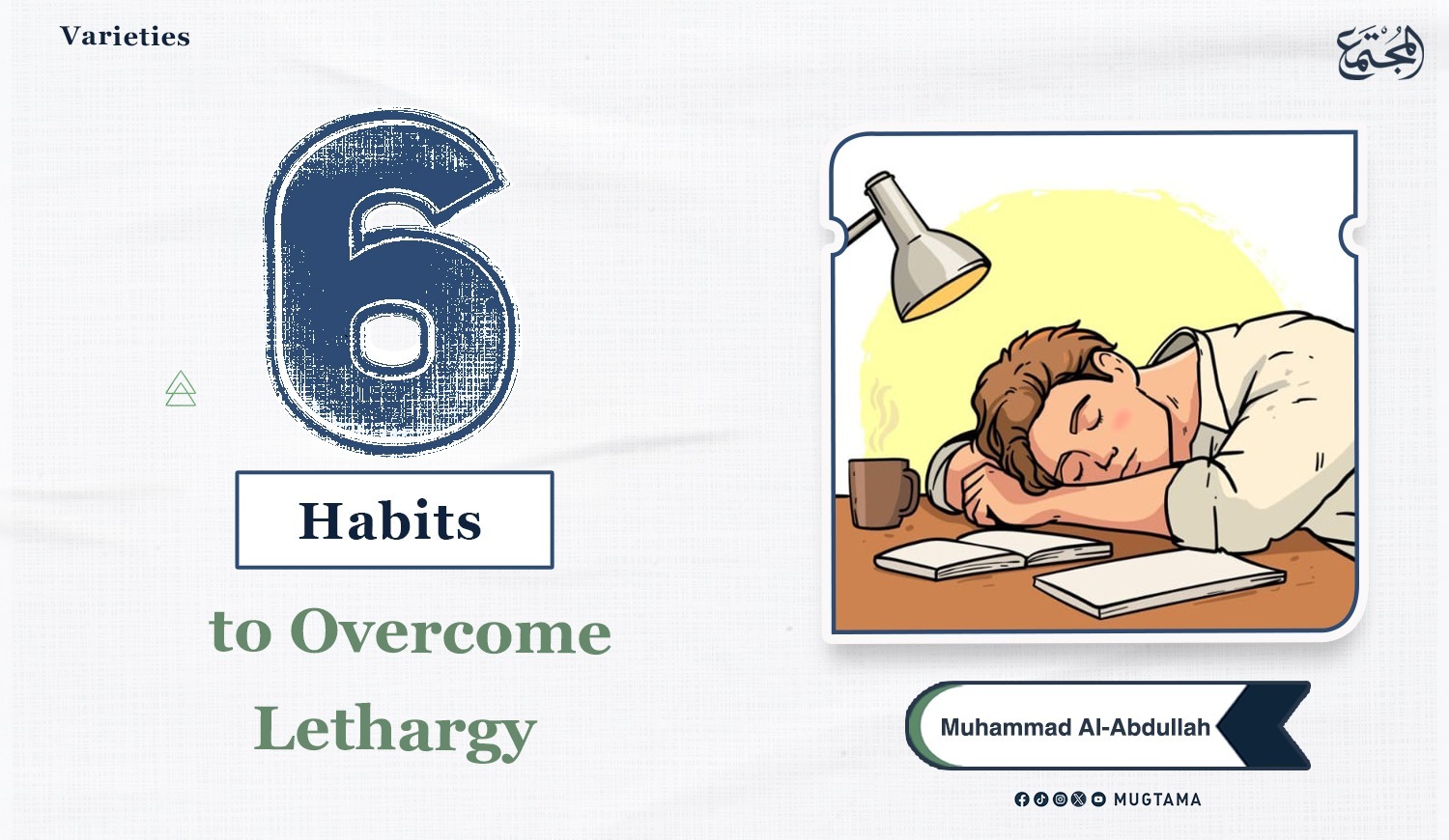6 Habits to Overcome Lethargy

The soul constantly lives between two
opposing states — between activity and laziness, fear and hope, happiness and
sadness — and other dualities that it can never fully escape.
However, when the soul falls into a
negative state, one must not surrender to it. Rather, it should be viewed as a
temporary condition that must be swiftly overcome, beginning the journey back
toward positivity so that the soul may return to its natural rhythm.
The Prophet (peace be upon him) would be gentle with his Companions; he did not
constantly deliver sermons, but rather did so at intervals, fearing that they
might grow weary or bored from repetition.
Among the states that affect the soul is sluggishness,
yet there are several important ways to overcome it and avoid succumbing to it,
such as:
1. Eating healthy foods:
Some may underestimate the importance of the quality of food, not realizing
that it can be one of the main causes of fatigue and lethargy.
The Quran urges us to consume good and pure
food: “And let him find which food is the purest.” (Al-Kahf 18:19) — for eating wholesome
food and refining one’s diet are key factors in avoiding the sluggishness that
overtakes the soul.
2. Focusing on quality, not quantity:
Some mistakenly believe that consuming large amounts of good food or other
wholesome things is the right way to build strength. However, the Prophet (peace
be upon him) reminded us: “A human being fills no worse vessel
than his stomach. It is sufficient for a human being to eat a few mouthfuls to
keep his spine straight.” (At-Tirmidhi). Maintaining the body
depends on choosing what is best — even if little — which points to the
importance of quality and variety over mere quantity.
3. Time management:
A Muslim is, by nature, an organized and disciplined person. Even in worship,
no act overshadows another, no matter how virtuous. There is no prayer more
excellent after the obligatory ones than the night prayer, the honor of the
believer. Yet, Prophet Dawud (David) used to divide his night — dedicating a
portion to sleep — which is healthier for the body, protects from fatigue, and
helps sustain quality in worship.
4. Overcoming psychological stress:
Chronic stress can lead to exhaustion — whether due to pressures at home, work,
or personal life. The key is to give each its due right. The Prophet (peace
be upon him) taught us: “You owe a duty to your body; you
owe a duty to your family; so you should give to everyone his due.” (Al-Bukhari).
5. Being aware of environmental changes:
It is important for a person to understand the climate and conditions of their
environment to avoid falling into sluggishness. The air, food, and drink of
every region differ from what one is accustomed to. It is known that when the
Companions migrated to Madinah, they were afflicted with fever that weakened
them and caused severe illness.
6. Do not belittle small deeds:
Staying connected and engaging in positive actions — even small ones — is
essential for renewal and avoiding laziness. The Prophet (peace
be upon him) said: “Do not consider any act of goodness
as being insignificant even if it is meeting your brother with a cheerful face.” (Muslim).
Starting with small, manageable goals
builds endurance, increases energy levels, and helps eliminate laziness and
sluggishness.
-------------------------------------------------------------
Read Also:
-
4 Steps to Develop Self-Discipline
-
5 Goals You Should Include in Your Personal Agenda











